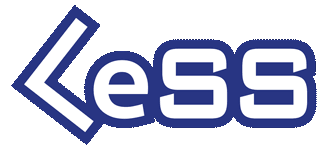LeSS in Action: Developers Practices
Taipei
Taiwan
Description :
企業組織的敏捷性受限於其技能的敏捷性。
|
為期 5 天的 LeSS in Action 培訓基於 Odd-e 十年以來引以為傲的 Certified Scrum Developer 培訓。培訓的關注點在於「工程技術實踐」與「企業組織管理」相結合,尤其是多團隊在同一個產品上透過 Scrum 的方式進行軟體開發(LeSS)的情境。畢竟在實務的應用中,二者相輔相成,缺一不可。 |
Agenda :
Monday:
- Requirement workshop / A-TDD
- Definition of Done
- Cucumber and Friends
- Sprint Plannings
Tuesday:
- Test-Driven Development
- Collaboration (Working in teams, SCM, Build Automation and other tools, Pair Programming, Continuous Integration and CI Systems, Collective Code Ownership)
Wednesday:
- Code Smells & Refactoring
- Thinking about test and test automation (Testing Pyramid, Mocking, Unit testing in other languages: JavaScript, Python, etc., Good Unit Testing
Thursday:
- Thinking about Design
- Feature Team Revisit
Friday:
- Working with Legacy Code
- Craftsmanship
- Retrospective
Details :
Product Backlog Refinement Workshop
In Large-Scale Scrum, the PBR workshop is one of the most critical activities. By doing the workshop in the sprint with multiple teams, we will cover the three essential aspects of this workshop: splitting big items, detailing the items, and estimating. Some optional techniques we might cover based on the situation include: impact mapping, storying mapping, specification by example, estimation ceremonies, etc.
Definition of Done
What is the purpose of the Definition of Done? We will also talk about what it is about, how to use it, and who should ensure it.
Sprint Plannings
(Cross-team) Sprint Planning Part One is mainly covered by the PBR workshop since there's only one sprint. Sprint Planning Part Two will be explained and practiced in detail.
Acceptance Test-Driven Development with Cucumber and Friends
This part explains how to drive the iteration with the examples derived from the PBR workshop. We will discuss the detailed technical approaches, good practices, and conventions.
The actual teaching or lecture is usually delayed to the next couple of days until the participants have real experience struggling with the tools and process. Most of the learning should be from the practices and on-time coaching from the course instructors. Same as all the other technical practices
Test-Driven Development
From day 2, all the code needs to be written by TDD. Same as described above, We will explain the philosophy very quickly with a simple exercise. Most of the learning should come from hands-on coaching and practicing.
Collaboration
This part explains the fundamental techniques and practices that enable teams to collaborate in a Large-Scale Scrum situation. Including:
- Working in teams
- SCM, Build Automation, and other tools
- Pair Programming
- Continuous Integration and CI Systems
- Collective Code Ownership
The above is getting the participant ready to understand why things are happening in the way they are in Large-Scale Scrum.
Code Refactoring
This part covers the why, what, and how of code refactoring. We'll train people to have the nose to smell bad code and the techniques to remove the bad smells.
More on Test Automation
With both the automated acceptance test and unit test covered in the course, in this part, we go deeper into (automated) testing. Including:
- Real testing/exploratory testing
- Product-wise testing strategies
- Good automated testing
- Unit testing other programming languages
Thinking about Design
Here we discuss the difference between emergent design and the traditional design style that often happens in a waterfall process.
On top of that, we also talk about the design principles and paradigms.
Thinking about "real testing", again
Feature Teams
With all gained knowledge from the first four days, we will finally explore this organizational structure topic again and see the links between the technical practices and team approaching and feature teams.
Legacy Code
Based on the book by Michael Feathers, Working Effectively With Legacy Code, we discuss the way of working when the code is without good test coverage, and the knowledge about how the code works is lost.
Craftsmanship
We will discuss the alternative metaphor for software practitioners to map their careers and guide them.
Retrospectives
The training is over, the teams created in the course won't continue (usually). We will try to give people an experience of a good retrospective, learn to identify bad smells in a retrospective, and learn good techniques for running a retrospective. We will also cover how large organizations do retrospectives.
It's hard to document what we do in the course precisely. Because every time the teams will be working on different product backlog items and continue the product left by the previous class, many contents will be emergent.
Price: 3,500 SGD
Early Bird Price: 3,000 SGD (End Date: 2024-12-06)
